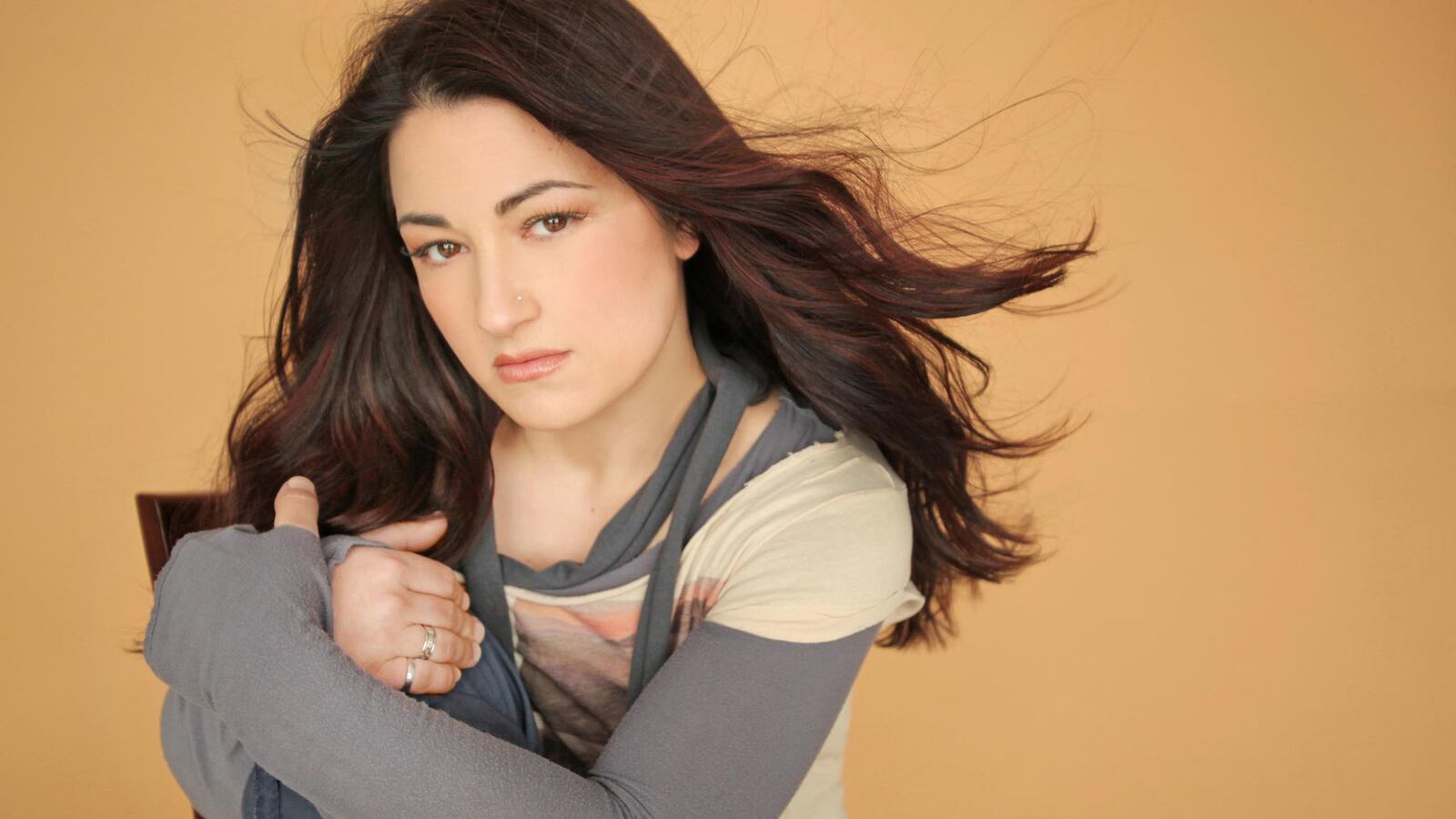Four years ago, when Christian singer Jennifer Knapp came off of a 6-year sabbatical away from Nashville’s music scene and announced that yep, the rumors were true, she was gay, the onetime Christian hit maker thought she knew what to expect.
“It’s a little like getting a tattoo,” Knapp tells me. “You know it’s going to hurt. You know it’s going to leave a permanent mark.”
Blazing onto the Christian music scene in 1998 with an album of acoustic rock confessions called Kansas—a record that sold more than 500,000 copies—Knapp quickly became one of Christian music’s best loved acts, an award-winning, top-selling talent adored by critics and audiences alike.
That’s likely why, despite many years removed from that success, Knapp knew that publicly proclaiming her truth, a truth she says wasn’t news among friends and family, would indeed hurt. And she was right. It did hurt. In fact, the singer songwriter comes clean in detail about the good, bad, and complicated parts of being a Christian music rock star in her just-released memoir, Facing the Music: My Story.
In many ways, Knapp expected that “coming out” would also become the catalyst for why she would walk away from faith as well as the Christian community.
“I thought my reward would be that I could purge my relationship with people in the religious community,” she says. “I figured I’d run the gauntlet of expected shaming and accusations of my disgrace, proving once and for all that my experience with faith was just a flimsy stop-gap for needs that I had in my life.”
But Knapp says she was wrong about that, at least in part. Though her being gay no doubt created a tribe of enemies in the evangelical community that once invited her to sing at their events, the singer admits that she’s mostly been surprised by the love and acceptance she’s experienced.
“What has surprised me the most, and what I didn’t know when I came out four years ago, is that there are plenty of Christians who see things differently and have for a very, very long time,” Knapp says. “Today, nearly every denomination you can think of has an active LGBT inclusive group in their midst, even if not everyone in that church agrees.”
According to Knapp, behind her closet door, there were a host of people “waiting on the outside eager to welcome me into bright, refreshing air.”
For some, Knapp’s experience begs the question: Is the Christian music industry softening its dogma against gays?
That might sound like a trick—perhaps rhetorical—question; however, despite the usual assumptions, it’s indeed a question that a handful of Christian influencers have started asking in recent months.
Jonathan Merritt, a popular religion writer, recently raised this question in an op-ed for The Week. Merritt’s inquiry came shortly after Vicky Beeching, a popular British worship leader and BBC personality, announced that she was gay.
Amid Christians warring online about Beeching’s sexuality and whether or not her theological explanations helped or hindered her story, citing her Oxford-studied theological chops, Merritt wondered if Beeching’s coming out might prove to be a more impactful catalyst for change.
He might have a point. Unlike artists such as Knapp or Ray Boltz, a longtime Christian artist who came out in 2004, Beeching’s announcement came with a rather involved theological exposition, enough biblical context to cause Merritt to suggest that it could have a deeper effect on Christians who can’t let go of their doctrinal grips against homosexuality.
In addition to Merritt, WORLD News Group’s VP, Warren Cole Smith, also touched on this topic in a rambling editorial lamenting Christian music’s liberal ways.
Though their motives are seemingly very different, Merritt and Smith might be on to something. While widespread change of any kind among religious folks is painstakingly slow, among those making faith-based music there does seem to be a growing shift of support for LGBTQ people and causes from Christian artists. There was that Twitter rant by Dan Haseltine, lead singer of Jars of Clay, supporting gay marriage.
And then there was 2013 interview with Amy Grant, an occasion when she shared how her views regarding gay marriage had changed over the years and how she now intentionally tries to always lead with compassion. The Christian music veteran went on to say that, “The journey of faith is just being willing and open to have a relationship with God. And everybody is welcome. Everybody.”
Jennifer Knapp’s return to music also seems to have inspired longtime Christian music artist and former Caedmon’s Call singer, Derek Webb. While Webb’s views about sexuality are unclear, his co-headlining tour with Knapp certainly suggests he’s not one to shy away from the controversy he knew would ignite.
But if change within the industry of Christian music is happening, it’s certainly not a mass trend. While there’s certainly a flurry of hope happening among artists, because this industry’s gate keepers are still old school advocates often heard rallying against the so-called “gay agenda,” the equality that many Christian artists promote more often is found not in what they say but in what they don’t.
As a former A-lister Christian artist, Jennifer Knapp understands fully the politics that exist in Christian music’s background. Still, though she hates that her name has become a lightning rod for many people, even former fans, she continues to speak up because, “it’s not just me this has happened to,” she says, “it’s practically a guarantee for anyone who’s ever come out within shouting distance of a church—that they will be called to answer for their ‘sin.’ [There are people] trapped in closets that, unfortunately, have been nailed shut by the most conservative of Christian teachings.”
Knapp hopes she can pry open some of those doors for people.
“[Because] how poorly and loudly some [Christians] preach, has made a deep scar in the LGBT community and amongst allies,” she says. “The idea of coming out without a well-rested friend at your side can seem impossible.
“I needed that once. I got it in huge measure, even after I came out. Maybe, that’s why I’m still around. To pay it forward.”






